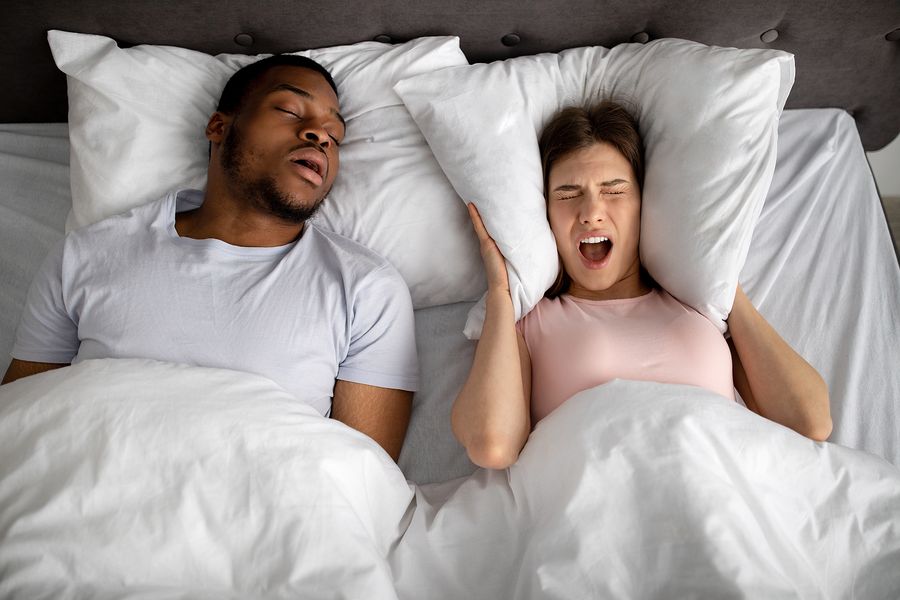Getting a full night’s sleep in this day and age is hard enough without adding medical conditions to the mix. A common disorder that can disrupt your sleep is sleep apnea. If you feel tired in the morning or snore loudly, sleep apnea is likely the reason why.
At Above & Beyond Dental, we use a series of treatment methods to curb the symptoms of sleep apnea and prevent the condition from leading to severe health issues.
What Is Sleep Apnea?
Sleep apnea is a disorder that causes patients to stop breathing for short periods during sleep.
Snoring is the most common symptom. The snoring associated with sleep apnea is extremely loud with momentary pauses. Other symptoms of sleep apnea include: anxiety, trouble concentrating, restlessness while sleeping, dry throat, sleepiness during the day, night sweats, and headaches.
If sleep apnea is left untreated for long, it can lead to depression and even heart issues.
What Are the Different Types of Sleep Apnea?
There are three main types of sleep apnea:
Obstructive Sleep Apnea
In this most common type, the airway is partially or fully blocked during sleep due to the relaxation of the throat muscles. Obstructive sleep apnea causes the chest muscles and diaphragm to work harder to open the airways. It can disrupt the oxygen flow to your heart and lead to serious health problems.
Central Sleep Apnea
Type of sleep apnea affects the brain’s signals to the muscles that control breathing.
Complex Sleep Apnea
Complex sleep apnea is defined as a combination of the other two types of sleep apnea.
What Are the Treatment Options for Sleep Apnea?
Based on the severity of your condition, our experts will design a customized treatment plan. The most common treatment methods for mild to severe cases of sleep apnea are:
Lifestyle Changes
For mild cases of sleep apnea, we will recommend lifestyle changes to curb the symptoms. Losing weight, avoiding tobacco, or treatment for nasal allergies are some of the changes that can help with sleep apnea.
Continuous Positive Airway Pressure (CPAP)
CPAP is a treatment for moderate and severe cases of sleep apnea. It uses a CPAP machine and mask to provide continuous air pressure to the patient and keep the airways open.
Surgical Treatment
If other therapies don’t work, the next best option is a surgical treatment such as tissue shrinkage, tissue removal, or jaw repositioning.

